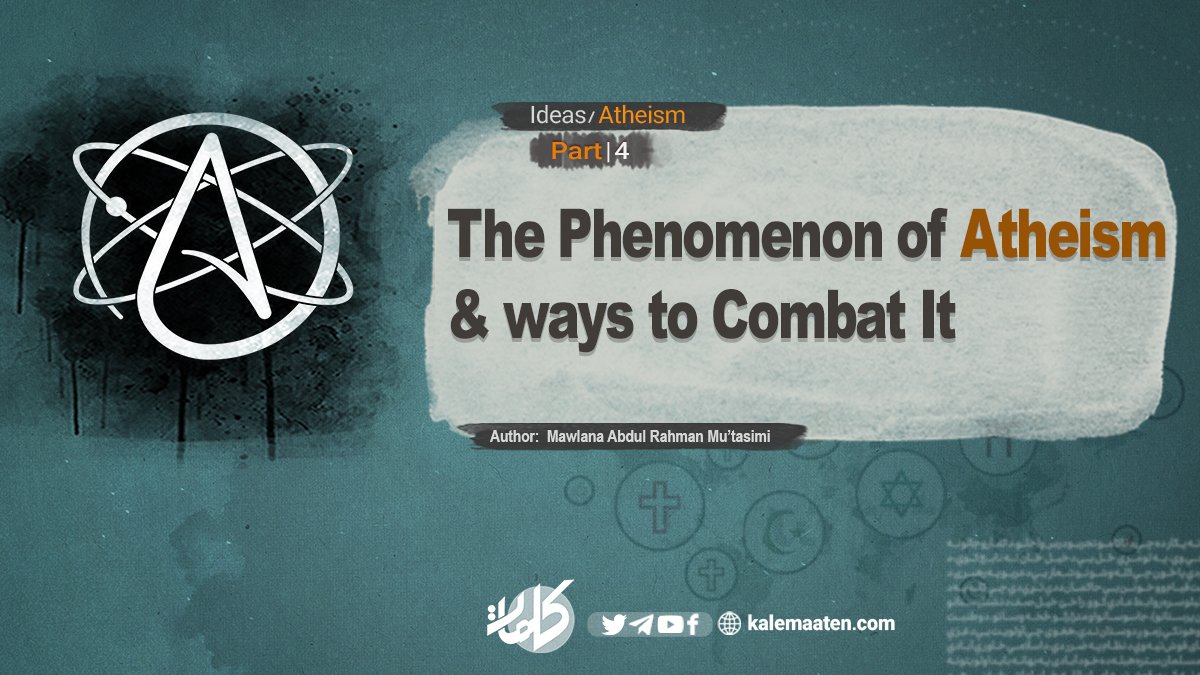
Author: Mawlana Abdul Rahman Mu'tasimi
The Phenomenon of Atheism and Ways to Combat It (Part Four)
Sophistry
Sophistry is a philosophical movement that is divided into three groups:
1. The Denialists: This group of sophists denies the existential truths of objects and claims that everything we think exists is merely illusions and fantasies. They do not acknowledge the existence of Allah (SWT) and the prophethood of the prophets (peace be upon them).
2. The Relativists: Members of this group believe that the existence of objects is not actually fixed or realized. They hold that everything is subject to beliefs and convictions, and whatever we believe in is realized in our minds, not in reality.
3. The Agnostics: Members of this group doubt the realization and denial of anything and remain suspended in their belief of existence.
Materialism
Materialism, in English, refers to a viewpoint that asserts that everything that exists in the universe is either matter or energy; all objects are composed of matter, and all phenomena, including self-awareness, are the result of material interactions. Materialism is a philosophical school with important branches, including mechanical materialism and dialectical materialism. Mechanical materialism was founded by Feuerbach, while dialectical materialism was established by Marx.
Materialism believes in the primacy of matter and claims that matter is eternal and uncreated, never born or generated, and is ancient; therefore, from the perspective of materialism, there is no need for a creator or originator for the universe.
Communism
Communism (communisme) is a French word. This term is derived from “commune,” meaning common, free, or public, and the suffix “ism.” Thus, linguistically, it can be interpreted as “the state of being common” or “the tendency towards being common.”
In terminology, it refers to an ideology of a philosophical, political, economic, and social movement that is fundamentally shaped by the ideas of Karl Marx and Friedrich Engels. The foundation of this school is based on materialism (materialism), atheism, and the denial of God.
Types and Forms of Atheism
Atheism, in a general sense, is divided into many types based on various falsehoods and parallels; disbelief, polytheism, hypocrisy, heresy, apostasy, doctrinal innovation, and all doubts and ambiguities regarding the essence, oneness, attributes, revelation and prophethood, divine scriptures, resurrection and resurrection, paradise and hell, and other essential and definitive matters and rulings of Islamic law are considered forms and types of atheism. In a specific sense, there are various divisions of atheism, which are outlined below:
First Division by Time
Atheism, in terms of time, is divided into two types: ancient and classical atheism, and modern atheism.
Second Division by Strength and Weakness
Atheism, in terms of strength and weakness, is divided into strong and weak types. Strong atheism means the belief in the non-existence of God, and those who hold such atheism are recognized as fundamentalist, extremist, and radical atheists. These types of atheists provide reasons for their atheism; they disseminate and promote their ideas and attack and insult religion and the religious. Weak atheism means the lack of belief in the existence of God, and those who hold such atheism do not disseminate or promote it; they do not strive to propagate it and do not openly express their hostility and enmity towards religion and the religious.
Continues…


